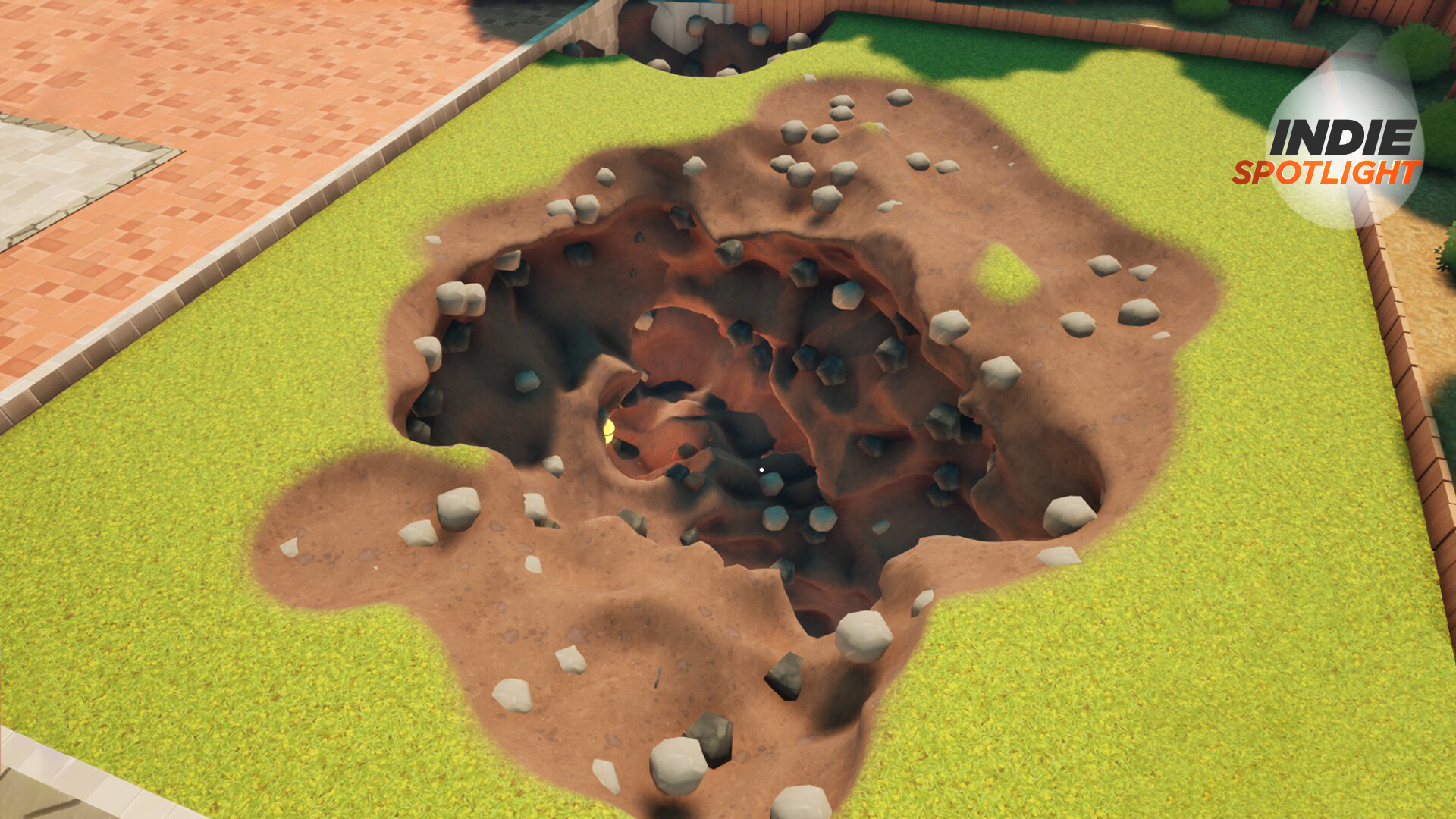I've sacrificed millions of imps in my new favorite roguelike city-builder, but it's still not enough
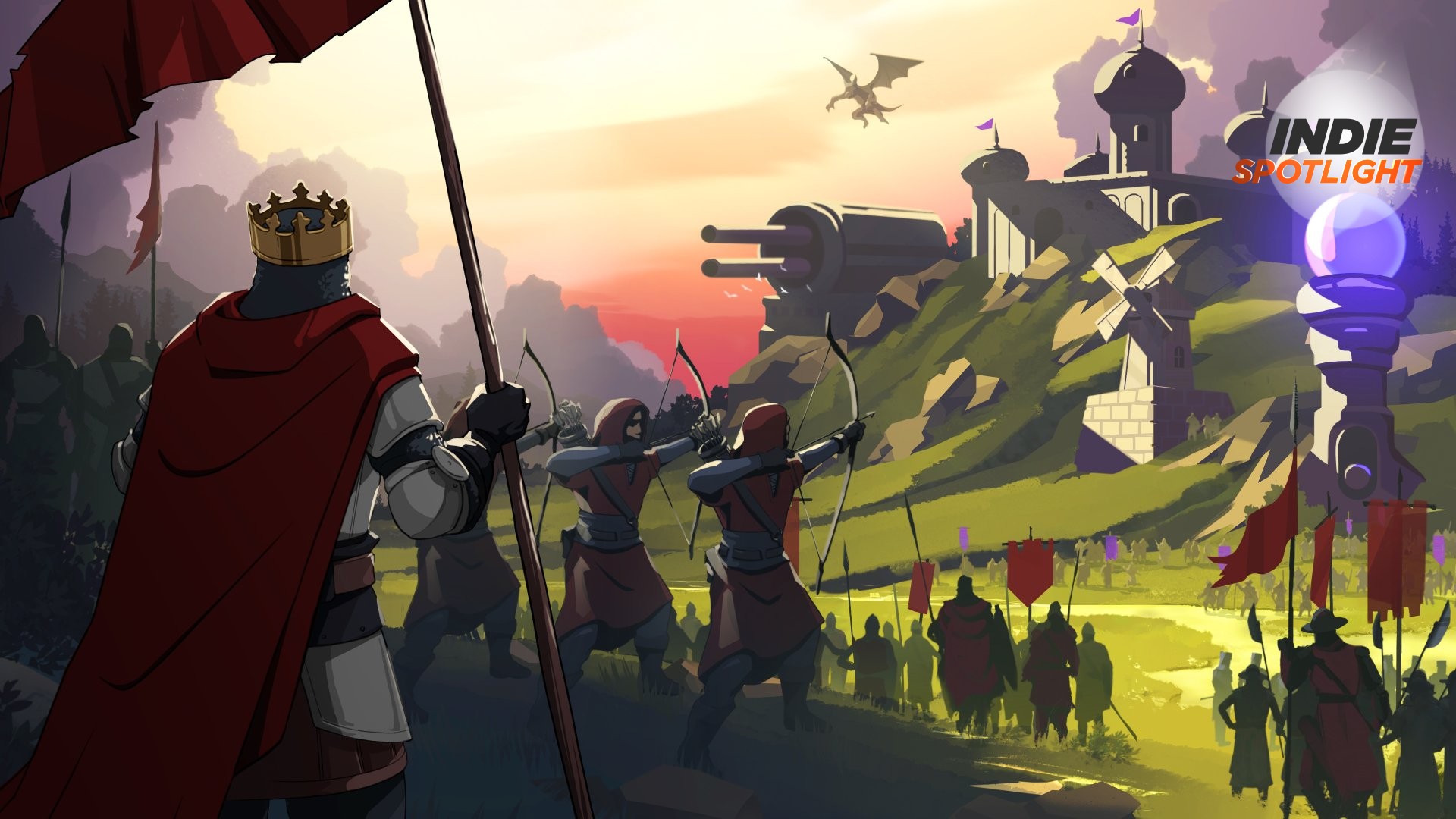
9 Kings is driving me to distraction. I've pushed my favorite build in this new roguelike city-builder to what I think is almost its limit, but I'm desperate to keep going just that little bit further, the fallacy of the cost I've sunk into this particular approach ringing in my ears.
As the name suggests, each run of 9 Kings starts with the choice of one of nine kings (at least it will eventually - two are on their way in a later update). Your choice of king will influence your city, and by extension your playstyle. The King of Greed, for instance, is focused around a strong economy, with units that become more effective as your coffers swell. The King of Stone is all about hard-hitting siege weaponry, while the King of Spells marches with an army full of spellcasters augmented by powerful magic.
But at the start of each run you'll also be presented with your enemies. A rebellious form of your own kingdom will be among them, but you'll also be fighting invaders from two or three other kings at any one time. Each in-game year will see a new invasion, and with each invasion you'll claim spoils - troops, constructions, or spells from your opponents' tech tree that you can use to build up your own city.
We built this city
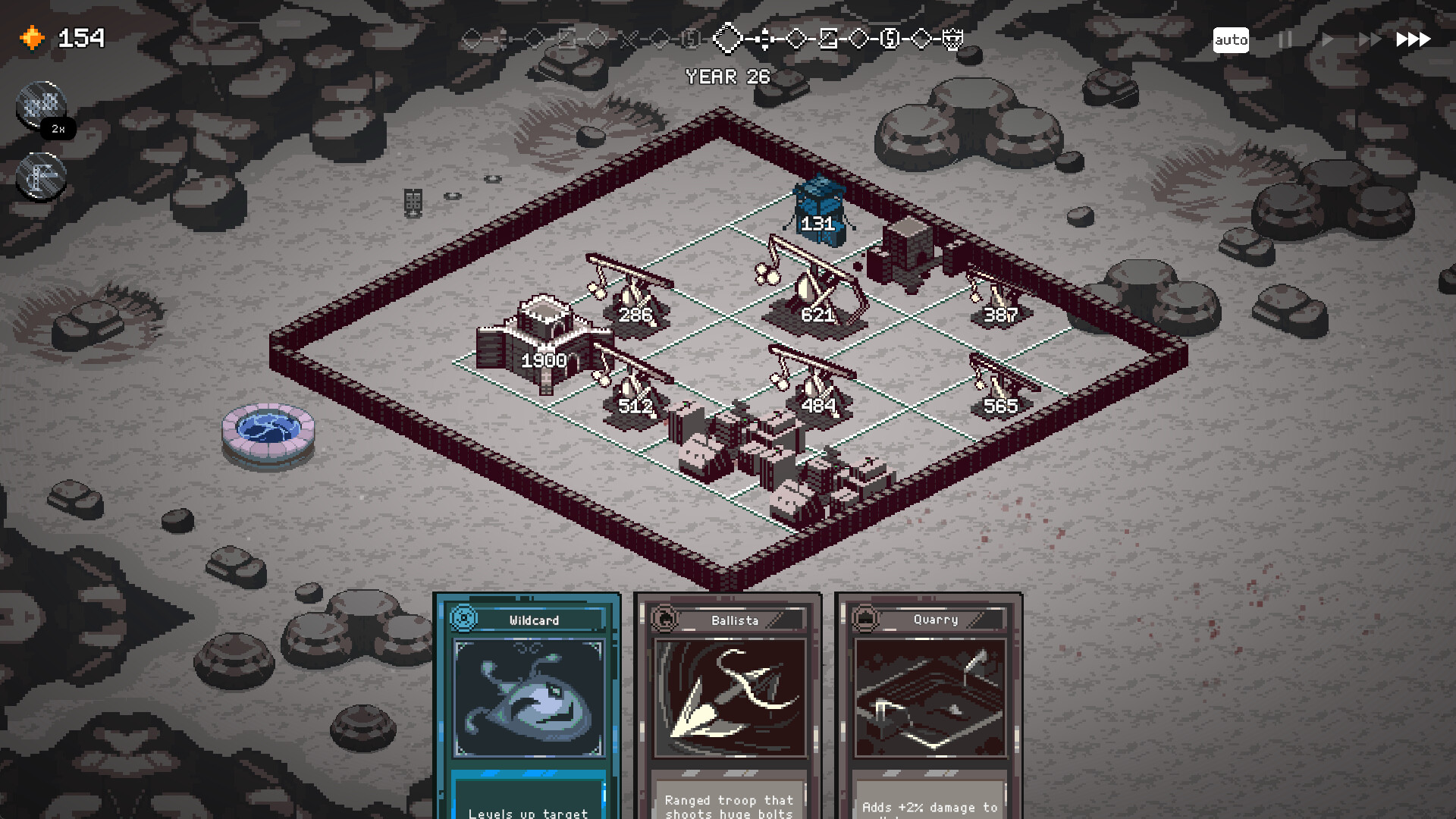
That city-building is surprisingly intricate. Starting on a map of just nine tiles, there's not much room to start setting up your strategy, and optimizing what space you do have is key. Different buildings layer their effects on top of each other, stacking buffs on the units you place between them - if you get everything in the right spot. Certain spells can be used to free up tiles by destroying what's already there - but since they increase the power of adjacent tiles, you want to make sure you're getting the most out of each cast.
When everything does line up, the ranks and stats of your army can quickly be increasing exponentially. But kicking off that stacking improvement can mean being incredibly precise in the early game. And if the right cards don't show up, it's up to you to adapt on the fly - I spent one run desperately hoarding gold because I'd accidentally found myself stealing scaling units from the King of Greed, and I needed as much cash on hand as I could get.
Ashes and Dust
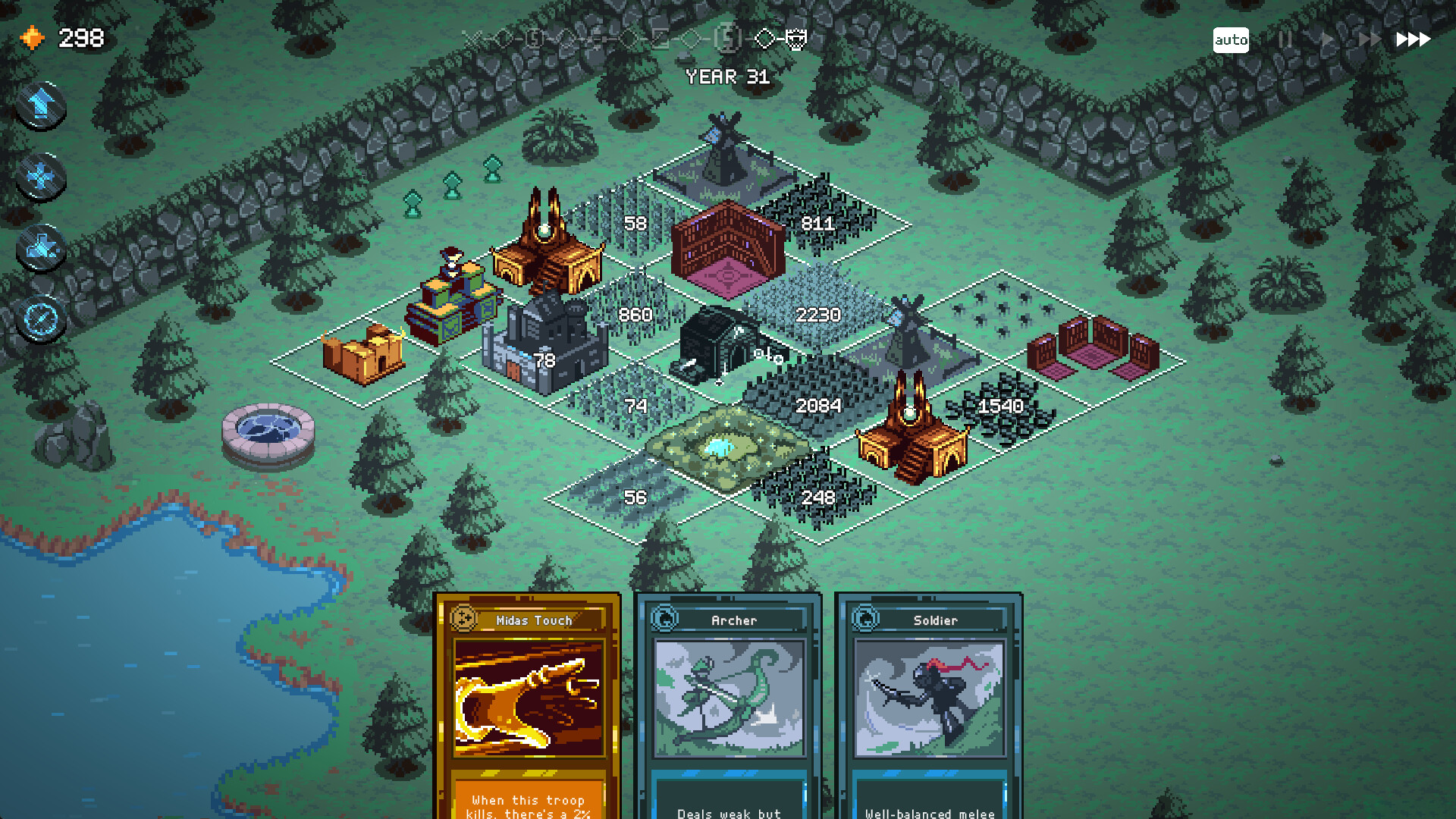
That can make 9 Kings' roguelike elements heartbreaking. Each year for 33 years will bring a new army to your door before a final showdown. In that time, you'll expand the borders of your kingdom, hear prophecies, and declare war or peace against enemy kings. All of these different decisions can weigh heavily on your chances of success; where's the best spot to unlock a new tile?; how do I take full advantage of this upcoming prophecy?; which king can I comfortably defeat, and which is likely to storm my castle?
With each year only offering one or two ways to exert your kingly influence, and only three successful invasions between a kingdom that thrives or perishes, every decision is made to count, often far more than you might originally expect. Often, an otherwise successful army can simply run out of steam if the cocktail of buffs you've been stacking up still can't cut it against late-game armies.
Weekly digests, tales from the communities you love, and more
I've lost track of the number of times I've been sitting pretty approaching the final showdown, only for my frontline troops to suddenly fold in front of an onslaught of spells or siege engines. That is, admittedly, partly my fault, because my favorite strategy is an aggro-heavy approach that relies on putting as much cannon fodder in front of my opponents as possible. The King of Blood thrives on massive armies of expendable units that overwhelm enemy troops.
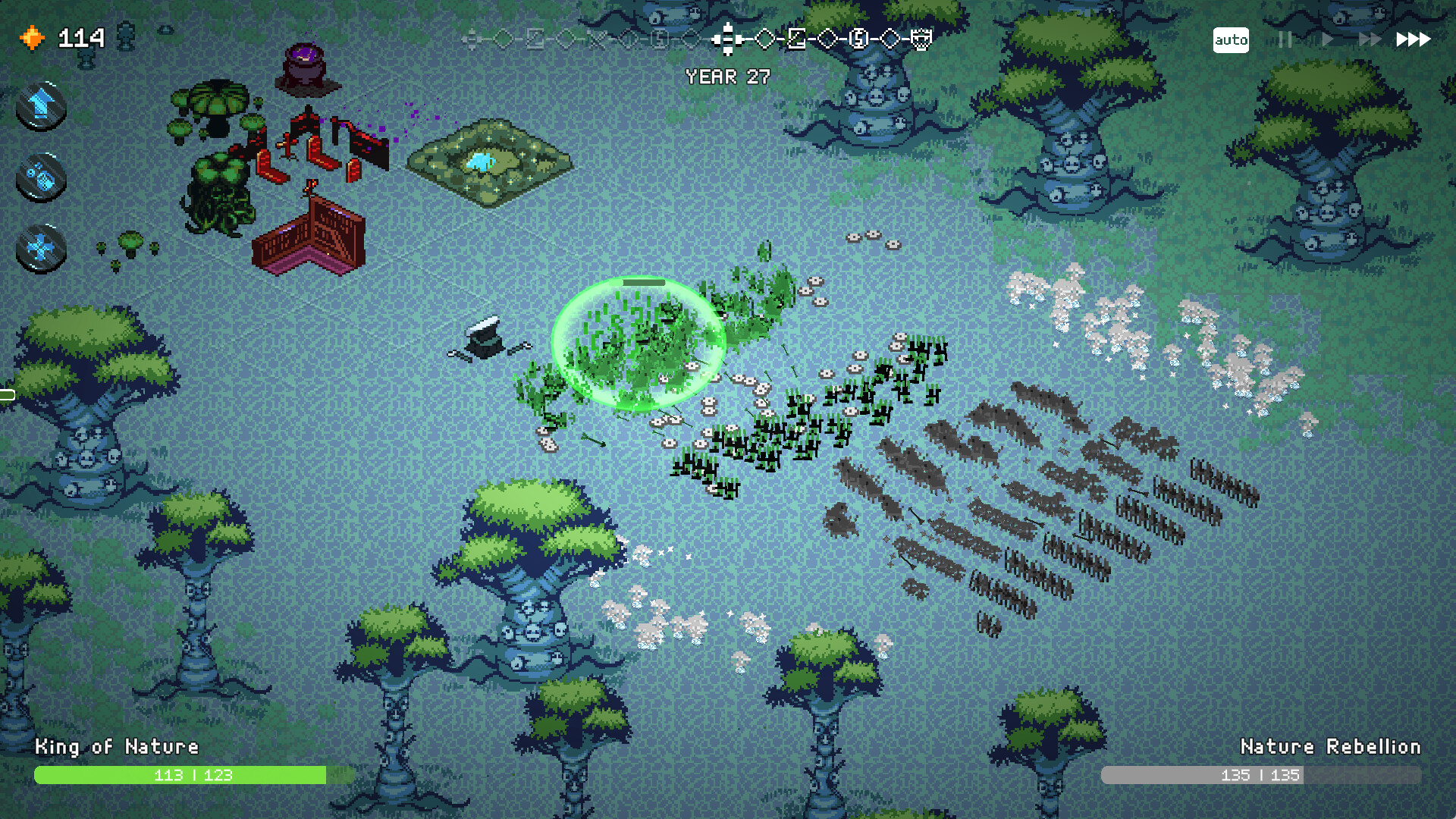
When any one of those units dies, Blood's cemeteries summon an impish replacement to take their spot on the field, while its Demon Altars gain strength from the life energy of the departed. It's an aggressive, entertaining twist on 9 Kings' otherwise slower, more gradual approach to gaining strength - simply overwhelm your enemies, and you'll often find yourself halfway through a successful run before you even notice.
Unfortunately, it's at that halfway stage that things start to get tricky for my imps, who tend to evaporate in the face of larger armies. That's good news for my Altars, which summon increasingly powerful Demons every turn, but if 90% of your army is killed in the first few seconds of battle, there's very little that the remaining 10% can do, no matter how many essences they've absorbed.
That's brought me to the real joy of 9 Kings. It requires such intricacy, such exact placement and planning in its late-game battles, that a single wasted turn feels like it can ruin a run. As it stands, I'm gradually pushing my way up through its endgame difficulty levels, attempting to master every different King and their varying playstyles, desperately trying to push each build just a touch beyond the record I set last time. It's an all-consuming, and often thankless task, but it's a testament to the city-builder's roguelike setup that I'm prepared to keep coming back to try again.
9 Kings is out now in Early Access on PC. For more recommendations, head on over to our Indie Spotlight series.

I'm GamesRadar's Managing Editor for news, shaping the news strategy across the team. I started my journalistic career while getting my degree in English Literature at the University of Warwick, where I also worked as Games Editor on the student newspaper, The Boar. Since then, I've run the news sections at PCGamesN and Kotaku UK, and also regularly contributed to PC Gamer. As you might be able to tell, PC is my platform of choice, so you can regularly find me playing League of Legends or Steam's latest indie hit.
You must confirm your public display name before commenting
Please logout and then login again, you will then be prompted to enter your display name.
